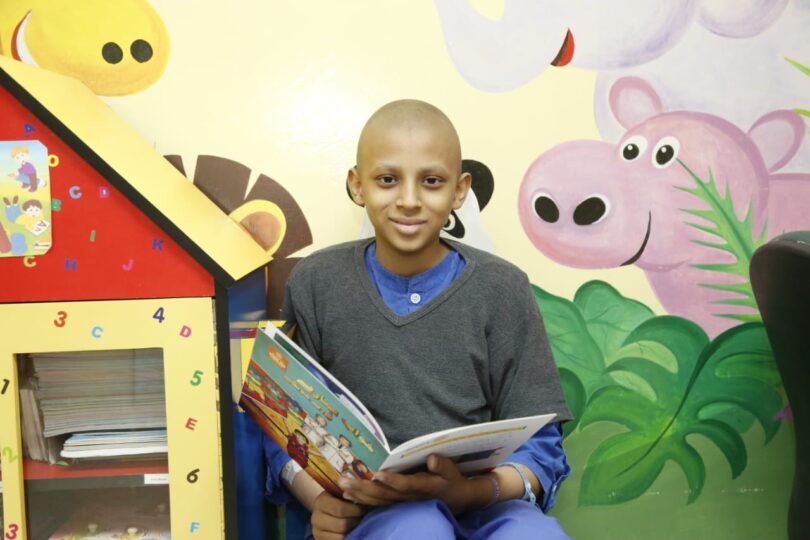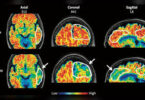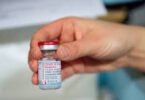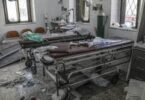F.P. Report
Cancer is one of the oldest diseases in human history, a burden that we have been trying to manage for many generations. The earliest evidence of cancer can be found in Egypt, dating back to 3000 BC but it was not until 1900s that the field of oncology started developing and people began to raise a voice to unite against cancer. Over time, high-income countries have had their share of failures and successes against cancer and they have come a long way in shaping the history of cancer treatment. On the other hand, in addition to the problems faced by the high-income countries, cancer in the low- and middle income countries face a different array of problems-making an already complex disease even more challenging.
Disease Prevalence
According to the World Health Organization (WHO), the toll of cancer is greater in low- and middle-income countries, where people develop chronic diseases “at younger ages, suffer longer – often with preventable complications – and die sooner than those in high-income countries.” According to an estimate, by 2040, the global burden is expected to grow to 27.5 million new cancer cases and 16.3 million cancer deaths. In Pakistan, it is estimated that there are around 180,000 new cases in a year and over 117,000 deaths from cancer. The magnitude of the problem demands that we make a focused and dedicated effort to fight cancer in LMICs.
Challenges in Low- and Middle-Income Countries
One of the major barriers for cancer patients in poverty stricken regions is the problem of “access” -they do not have enough funds to see a doctor because either reaching a hospital requires travel expenses or they cannot afford the costs of diagnostic tests and doctors fee; leading to late diagnosis of the disease, causing avoidable loss of life. Due to a lack of awareness and stigma, they are more likely to ignore certain signs and symptoms until it is too late. Moreover, cancer patients from underserved areas often do not have access to nutritious food leading to malnourishment, which makes cancer treatments, such as chemotherapy, difficult to tolerate. Having your chances limited due to your economic background adds to the tragedy of suffering from cancer. Lastly, a crucial aspect of battling any disease, especially cancer, is the patient’s fighting spirit and mental well-being. The burden of poverty adds to the burden of disease and weighs down on the patient and their family psychologically.
SKMCH&RC Easing the Burden of Cancer
In Pakistan, the Shaukat Khanum Memorial Cancer Hospital and Research Centre (SKMCH&RC), Lahore, opened in 1994 as the nation’s first specialist cancer hospital. The Hospital’s mission statement reflects remarkable foresight-it sums up how it hopes to address the above discussed issues: “To act as a model institution to alleviate the suffering of patients with cancer through the application of modern methods of curative and palliative therapy irrespective of their ability to pay, the education of health care professionals and the public and perform research into the causes and treatment of cancer”. Over the past twenty-eight years, SKMCH&RC has continued to provide quality treatment to underprivileged cancer patients-over 75% of whom receive financially supported treatment each year.
The Shaukat Khanum healthcare system admits patients for treatment based on clinical guidelines, irrespective of their socio-economic background. It has established walk-in clinics providing cancer-screening facilities in Lahore, Peshawar, and Karachi to allow easy access to cancer patients and to fast-track cancer diagnosis. If patients are unable to cover the cost of treatment, and majority of cancer patients in our country form this group, they are assessed for financial support and are provided the care they deserve, free of charge.
Prevention and early detection are important tools as part of any strategy to effectively fight cancer. SKMCH&RC conducts cancer awareness campaigns for various types of cancers, focusing on commonest cancers that are preventable or have a high cure rate if detected early, namely tobacco-use related cancers and breast cancer. The Hospital organises awareness sessions in colleges and poster competitions in schools to raise cancer awareness amongst youth at an early age.
Providing Equitable Access to Holistic Care
Cancer management requires a holistic and multi-disciplinary approach. Equity demands that we make efforts to provide not only similar treatment to all patients but also provide them what they need to achieve similar outcomes of treatment. For example, the problem of malnourishment is massive and can affect cancer treatment outcomes. The Hospital works to help such patients who have been admitted to the Hospital by providing them meals as advised by nutritionists, irrespective of the patients’ paying power. For patients who are eligible for hundred percent financial support, their food expenses are fully covered during hospital admission. Lastly, SKMCH&RC has ancillary health care section that is dedicated to help the psychological wellbeing of patients.
The Hospital not only provides counselling for patients but also for the families of these patients. Catering to the needs of young patients, the Hospital provides a child-friendly environment. It has a play-room with a dedicated play-therapist to help distract paediatric patients from the pain of their situation. The Hospital’s Schooling Programme aims to promote education and gives hope to young children for a life beyond cancer. It benefits children who are already going to school and it especially benefits those children who have never stepped inside a school.
The Hospital teaches them a basic curriculum while they are under-treatment and encourages the parents to continue their child’s education after the completion of treatment. The Hospital remains committed to holistic care by incorporating palliative care as an integral part of cancer treatment regimen. Nearly 500 patients are seen on palliative care each year, an approach that is focused on improving quality of life of patients and families by addressing physical, psychological, and spiritual issues during the course of cancer treatment.
The Journey of Hope Against Cancer Continues
Each year, Shaukat Khanum is able to treat a fraction of overall new cancer patients in the country at its hospitals in Lahore and Peshawar. To bring quality and comprehensive cancer care closer to the people of Sindh and Southern Balochistan, SKMCH&RC is building Pakistan’s third and biggest cancer hospital in Karachi, which is planned to open this year in December.
This means that the organisation’s budget for this year is a huge figure of Rs. 39 billion, relying hugely on the generosity of the people, to be able to run two state-of-the-art cancer hospitals and to open the third one on time. Each year, SKMT’s supporters rise to the challenge and give generously because they trust that their donations and Zakat are spent on deserving patients according to a transparent system. Donations are recorded in the electronic hospital information system, donors receive formal receipts, and all the financial statements of the organisation are published each year on their website. Ramzan is the month of giving and in this month, we must remember those who are struggling with the burden of battling cancer. Cancer causes great disruptions to lives and livelihoods of people.







